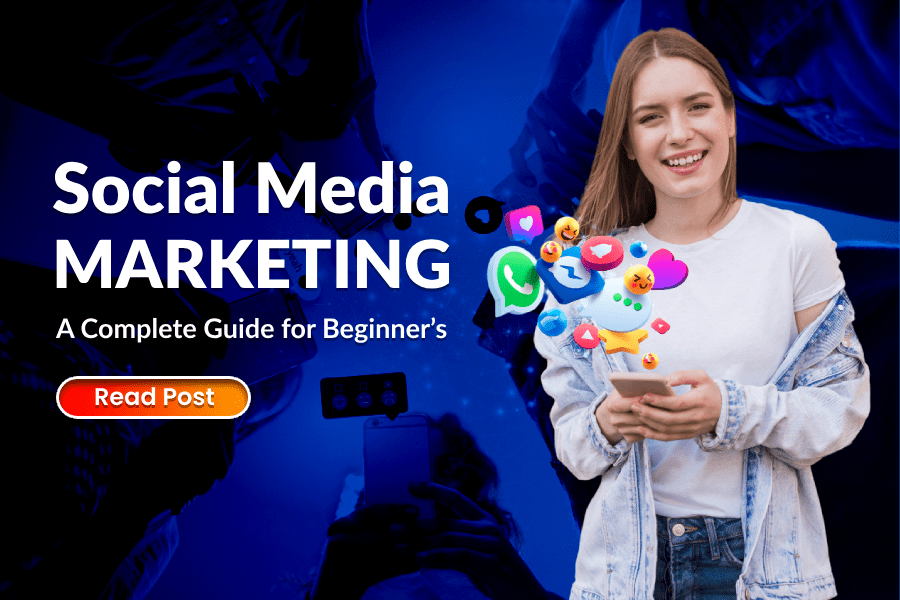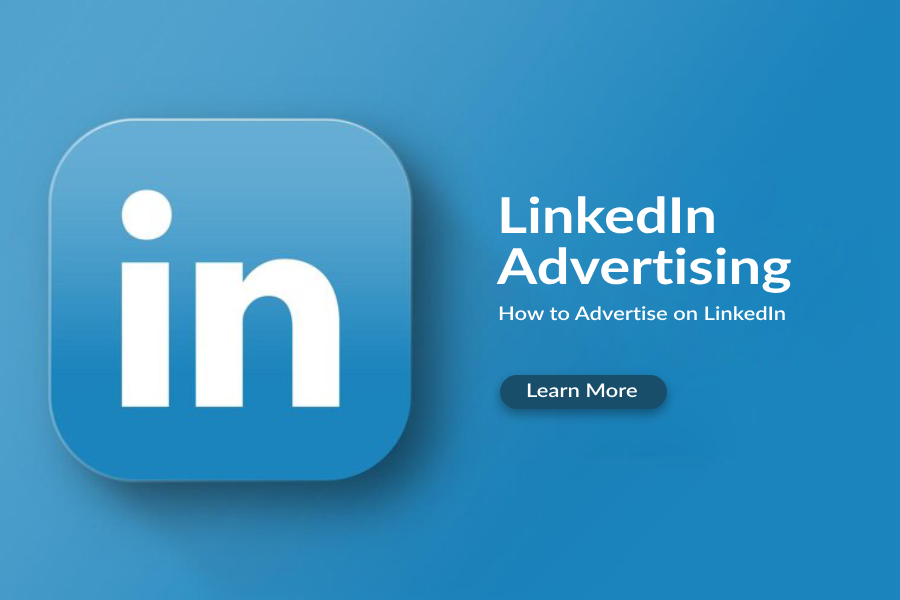Table of Content
- What is Social Media Marketing?
- Benefits of Social Media Marketing
- Types of Social Media Marketing
- Importance of Social Media Marketing
- Best Social Media Platforms for Marketing
- Social Media Marketing Strategy
- Key Metrics to Track in Social Media Marketing
- Why Should you choose Social Media Marketing Services?
In today’s digital era, social media is super important. We use it to chat with loved ones and find cool stuff to buy. Facebook, Instagram, Twitter, and LinkedIn are big players in this game. But have you ever wondered how businesses leverage social media to promote their products and services? This is where Social Media Marketing (SMM) comes into play.
What is Social Media Marketing?
Social Media Marketing is a powerful way for businesses to reach customers online. It involves using social media platforms like Facebook, Instagram, and Twitter to promote products or services. Instead of traditional ads, marketers create engaging content to connect with audiences. This can include posts, videos, or contests that encourage likes, shares, and comments. By interacting with users, businesses build relationships and brand loyalty. Social Media Marketing helps businesses increase visibility, drive website traffic, and generate sales. It’s all about leveraging the power of social networks to connect with people and grow your business.
What Are the Benefits of Social Media Marketing for Businesses?
Social Media Marketing offers numerous benefits for businesses. Firstly, it helps in increasing brand awareness. By being active on platforms like Facebook, Instagram, and Twitter, businesses can reach a wider audience and make people aware of their products or services.
Secondly, social media allows businesses to engage directly with their customers. Through comments, messages, and posts, businesses can build relationships with their audience, address their concerns, and receive feedback.
Moreover, social media marketing is cost-effective compared to traditional advertising methods. It allows businesses to target specific demographics and reach potential customers at a lower cost.
Additionally, social media marketing can drive website traffic and increase sales. By sharing links to their website or online store, businesses can attract more visitors and convert them into customers.
Furthermore, social media provides valuable insights and analytics. Businesses can track their performance, monitor engagement metrics, and make data-driven decisions to improve their marketing strategies.
Overall, social media marketing is a powerful tool for businesses to enhance their online presence, connect with customers, and achieve their marketing goals.ses the chances of converting leads into customers.
Types of Social Media Marketing
Social media marketing comes in various types, each with its own unique approach to reaching and engaging with audiences.
Content Marketing:
This type focuses on creating and sharing valuable content on social media platforms. It includes blog posts, articles, videos, and infographics that aim to educate, entertain, or inspire the audience. The goal is to attract attention and encourage interaction, ultimately driving traffic and building brand credibility.
Influencer Marketing:
Influencer marketing involves collaborating with individuals who have a large following on social media. These influencers endorse products or services to their audience, leveraging their credibility and trust to promote brands. It helps businesses reach a targeted audience and build authenticity through trusted recommendations.
Social Media Advertising:
Social media advertising involves paying to display ads or sponsored content on social media platforms. It allows businesses to target specific demographics, interests, and behaviors to reach potential customers. With various ad formats such as carousel ads, video ads, and sponsored posts, businesses can effectively promote their products or services to a relevant audience.
Community Engagement:
Community engagement focuses on building relationships and fostering conversations with the audience on social media. It involves responding to comments, messages, and mentions, as well as actively participating in discussions and communities related to the business niche. By engaging with users authentically, businesses can strengthen brand loyalty and increase customer satisfaction.
Social Media Contests and Giveaways:
Contests and giveaways are a fun way to engage and reward followers on social media. Businesses can host contests where participants are required to like, share, or comment on posts to enter. Giveaways involve offering free products or services to lucky winners. These initiatives help increase brand visibility, attract new followers, and encourage user-generated content.
User-generated Content (UGC) Campaigns:
User-generated content campaigns involve encouraging customers to create and share content related to the brand. It could be in the form of testimonials, reviews, photos, or videos showcasing their experiences with the product or service. By leveraging UGC, businesses can amplify their reach, build social proof, and foster a sense of community among their audience.
These are some of the key types of social media marketing strategies businesses can utilize to effectively connect with their target audience, drive engagement, and achieve their marketing objectives.

Importance of Social Media Marketing for Business Growth
In the dynamic landscape of digital marketing, social media marketing stands out as a powerhouse, revolutionizing how businesses engage with their audience, promote products, and build brand awareness. It’s not merely a trend; it’s a fundamental shift in how businesses communicate and connect with their target market. At its core, social media marketing encompasses strategies that leverage various social media platforms to achieve marketing and branding goals.
Which Social Media Platforms are Best for Marketing?
Facebook: The Giant Among Platforms
Facebook, with its colossal user base, remains a cornerstone for social media marketing efforts. With over 2.7 billion monthly active users, it offers unparalleled reach and targeting capabilities. Businesses can create Facebook Pages to establish a presence, engage with followers through posts and comments, and leverage paid advertising to target specific demographics with precision.
Instagram: Visual Storytelling at Its Finest
As the go-to platform for visual content, Instagram provides businesses with a platform to showcase their products and services creatively. Through compelling images, videos, and Stories, brands can craft a visually appealing narrative that resonates with their audience. Moreover, features like Instagram Shopping enable seamless shopping experiences directly within the app, driving conversions and sales.
Twitter: Real-Time Engagement and Conversations
Twitter’s fast-paced environment makes it ideal for real-time engagement and conversations. Brands can leverage hashtags, trending topics, and Twitter Chats to join relevant discussions, establish thought leadership, and foster meaningful connections with their audience. Additionally, Twitter Ads offer targeting options to reach specific demographics and amplify brand messaging effectively.
LinkedIn: The Professional Networking Hub
For B2B businesses and professionals, LinkedIn serves as a goldmine for networking, lead generation, and content distribution. Through LinkedIn Pages and LinkedIn Groups, businesses can position themselves as industry leaders, share valuable insights, and connect with potential clients and partners. LinkedIn Ads further enhance reach and visibility, allowing businesses to target decision-makers and stakeholders effectively.
YouTube: Video Content Domination
With over 2 billion logged-in monthly users, YouTube reigns as the king of video content platforms. Businesses can leverage YouTube channels to publish engaging video content, including tutorials, product demonstrations, vlogs, and advertisements. The platform’s robust analytics provide valuable insights into audience behavior and preferences, enabling businesses to refine their content strategy for maximum impact.
Pinterest: A Visual Discovery Engine
With its focus on visual discovery and inspiration, Pinterest is a valuable platform for businesses in industries such as fashion, home decor, food, and lifestyle. Businesses can create visually appealing pins to showcase products, DIY ideas, and curated collections, driving traffic back to their website or online store. Pinterest Ads offer advanced targeting options to reach users based on their interests, behaviors, and search intent.
How to Develop an Effective Social Media Marketing Strategy?
Define Clear Objectives and KPIs
Before diving into social media marketing, it’s essential to establish clear objectives and key performance indicators (KPIs) that align with your overall business goals. Whether it’s increasing brand awareness, driving website traffic, generating leads, or boosting sales, defining measurable objectives ensures that your efforts yield tangible results.
Know Your Audience Inside Out
Understanding your target audience is paramount to crafting compelling content and delivering personalized experiences. Conduct thorough market research to identify demographics, preferences, pain points, and behavior patterns. Armed with this knowledge, tailor your content to resonate with your audience’s interests and aspirations, fostering deeper connections and driving engagement.
Create Valuable and Engaging Content
In the oversaturated world of social media, quality content reigns supreme. Whether it’s captivating visuals, informative articles, entertaining videos, or interactive polls, focus on delivering value to your audience. Strive to educate, entertain, inspire, or solve problems, positioning your brand as a trusted source of expertise and insight in your niche.
Foster Meaningful Engagement and Community Building
Social media is not merely a broadcasting platform; it’s a two-way street for conversation and engagement. Actively respond to comments, messages, and mentions, fostering genuine interactions with your audience. Encourage user-generated content, host contests, and create polls to involve your audience in the conversation and foster a sense of community around your brand.
Analyze and Iterate for Continuous Improvement
Regularly monitor and analyze your social media performance metrics to gauge the effectiveness of your strategies. Identify what’s working well and areas for improvement, then iterate and optimize accordingly. Experiment with different content formats, posting schedules, and messaging tactics to refine your approach and achieve better results over time.

What Are the Key Metrics to Track in Social Media Marketing?
In social media marketing, tracking key metrics is essential for assessing the effectiveness of your strategies, measuring engagement, and optimizing your campaigns for better results. Here are some of the key metrics to track:
- Engagement Rate: The engagement rate gauges the extent to which your audience interacts with your content. Calculating the engagement rate helps you understand how well your content resonates with your audience and encourages them to act.
- Reach: Reach signifies the count of distinct users who have viewed your content. It provides insight into the potential size of your audience and how effectively your content is being distributed across social media platforms. Monitoring reach helps you gauge the effectiveness of your content distribution strategy.
- Impressions: Impressions denote the overall count of occasions your content has appeared on users’ screens. While similar to reach, impressions count every instance of your content being displayed, including multiple views by the same user. Tracking impressions helps you assess the overall visibility and exposure of your content.
- Click-Through Rate (CTR): CTR calculates the proportion of users who engage by clicking on a link or call-to-action (CTA) embedded within your social media content. It indicates the effectiveness of your messaging and the relevance of your CTA to your audience. A high CTR suggests that your content is compelling and encourages users to take the desired action.
- Conversion Rate: Conversion rate measures the percentage of users who complete a desired action, such as making a purchase, signing up for a newsletter, or filling out a form, after interacting with your social media content. It directly ties social media efforts to business objectives and helps you evaluate the effectiveness of your conversion funnel.
- Follower Growth Rate: Follower growth rate tracks the rate at which your social media audience is expanding over time. It reflects your ability to attract and retain followers through compelling content and engaging interactions. Monitoring follower growth rate helps you assess the health and vitality of your social media presence.
- Sentiment Analysis: Sentiment analysis involves analyzing the sentiment or emotional tone of user comments, mentions, and interactions with your brand on social media. It helps you understand how your audience perceives your brand and content, allowing you to adjust your messaging and strategy accordingly to maintain a positive brand reputation.
- Share of Voice: Share of voice measures your brand’s presence and visibility compared to your competitors within a specific industry or market segment. It provides insight into your brand’s relative influence and authority within the social media landscape and helps you identify opportunities to increase your share of the conversation.
- Social Media ROI: Social media ROI quantifies the return on investment generated from your social media marketing efforts. It involves calculating the revenue or business outcomes directly attributable to your social media activities and comparing them to the costs incurred. Understanding social media ROI helps you allocate resources effectively and demonstrate the impact of your efforts on the bottom line.
By tracking these key metrics, businesses can gain valuable insights into their social media marketing performance, identify areas for improvement, and optimize their strategies for maximum impact and ROI.
Why Should you choose Social Media Marketing Services?
Social media has become more than just a platform for connecting with friends and sharing photos. It has evolved into a powerful tool for businesses to reach their target audience and grow their brand. That’s where social media marketing services come in, offering a myriad of benefits that can propel your business to new heights.
First and foremost, social media marketing services provide you with the opportunity to expand your online presence. With billions of users active on various social media platforms every day, these services help you tap into a vast audience that you may not reach through traditional marketing methods alone. By establishing a strong presence on platforms like Facebook, Instagram, Twitter, and LinkedIn, you can increase brand awareness and attract potential customers.
Moreover, social media marketing services enable you to engage with your audience on a more personal level. Unlike traditional advertising, which often feels impersonal and one-sided, social media allows for two-way communication. Through posts, comments, and messages, you can interact directly with your followers, building meaningful relationships and fostering loyalty. This engagement not only strengthens your brand image but also encourages customer retention and advocacy.
Another compelling reason to choose social media marketing services is their ability to drive targeted traffic to your website. By creating and sharing valuable content that resonates with your audience, you can attract users who are genuinely interested in your products or services. Additionally, many social media platforms offer sophisticated targeting options, allowing you to tailor your content to specific demographics, interests, and behaviors. This precision targeting ensures that your marketing efforts are reaching the right people at the right time.
Furthermore, social media marketing services provide valuable insights and analytics that can inform your marketing strategies. By tracking metrics such as engagement, reach, and conversions, you can gain valuable insights into your audience’s preferences and behavior. Armed with this data, you can refine your approach, optimize your content, and maximize your return on investment.
Perhaps most importantly, social media marketing services offer a cost-effective way to promote your business. Compared to traditional advertising channels such as television, radio, and print, social media marketing is often more affordable and offers a higher return on investment. With the right strategy in place, you can reach thousands or even millions of potential customers without breaking the bank.
In conclusion, the benefits of social media marketing services are clear. From expanding your online presence and engaging with your audience to driving targeted traffic and gaining valuable insights, these services offer a multitude of advantages for businesses of all sizes. By harnessing the power of social media, you can elevate your brand, increase your visibility, and ultimately, achieve your business goals.







